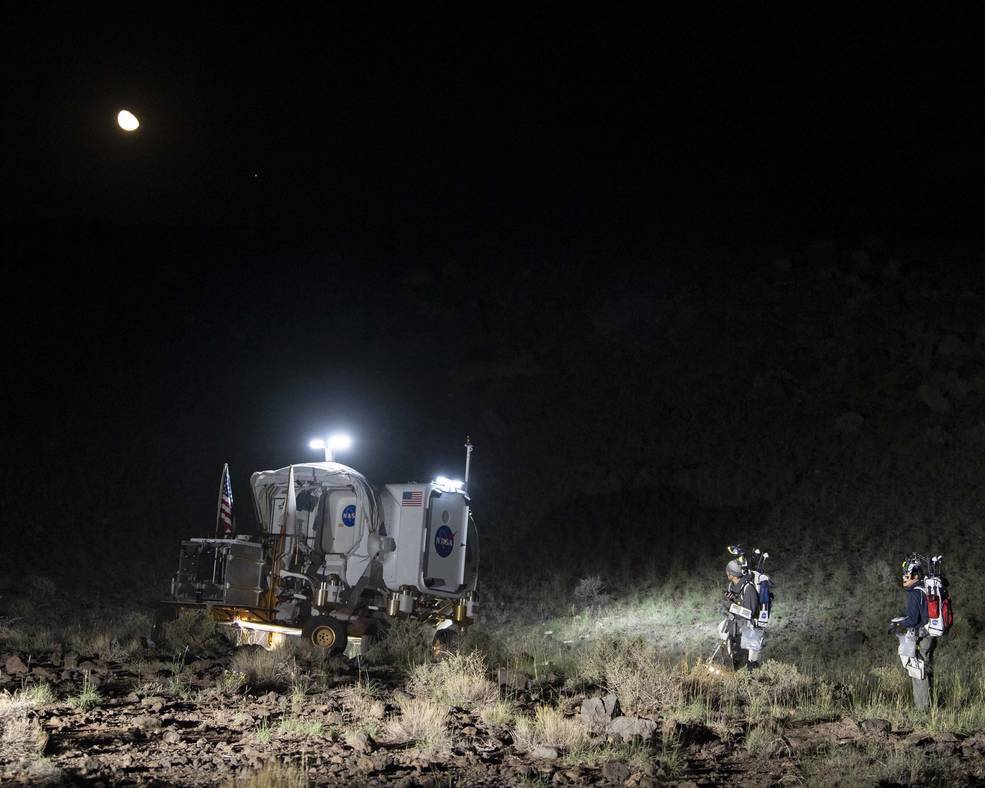23.10.2022

Media are invited to visit NASA’s Desert Research and Technology Studies (Desert RATS) team members on Monday, Oct. 24, at the Black Point Lava Flow near Flagstaff, Arizona. Through Desert RATS, NASA and its partner are practicing rover operations for future Artemis missions.
The training mission, which kicked-off on Saturday, Oct. 11, is running through Saturday, Oct. 22, and primarily focuses on conducting pressurized rover operations. This skillset is a key element of future Moon missions starting with Artemis VII in 2030.
NASA’s in-person only event includes an opportunity to speak with subject matter experts and ride inside the prototype Moon rover.
The media day schedule is as follows (all times MST):
- 12:30 p.m. Arrival
- 1 p.m. Overview briefing and Q&A
- 1:30 p.m. Speak to subject matter experts and ride rover
Reporters wishing to attend must request accreditation by 5 p.m. EDT, Thursday, Oct. 20, from Nilufar Ramji at: 281-483-5111 or nilufar.ramji@nasa.gov.
Simulating lunar missions, Desert RATS crews are traversing the desert, living and working in the rover, and exiting to conduct moonwalks. NASA and its partner, Japan Aerospace Exploration Agency (JAXA), will gather data about the pressurized rover’s design, cabin configuration, driving modes, timeline constraints, and mission operations to support potential design concepts for future pressurized rovers.
Through Artemis, NASA will land the first woman and the first person of color on the Moon, paving the way for a long-term, sustainable lunar presence and serving as a steppingstone for future astronaut missions to Mars. Mission simulations on Earth help prepare humans for the challenges of deep space exploration and journeying farther into the solar system.
Quelle: NASA
